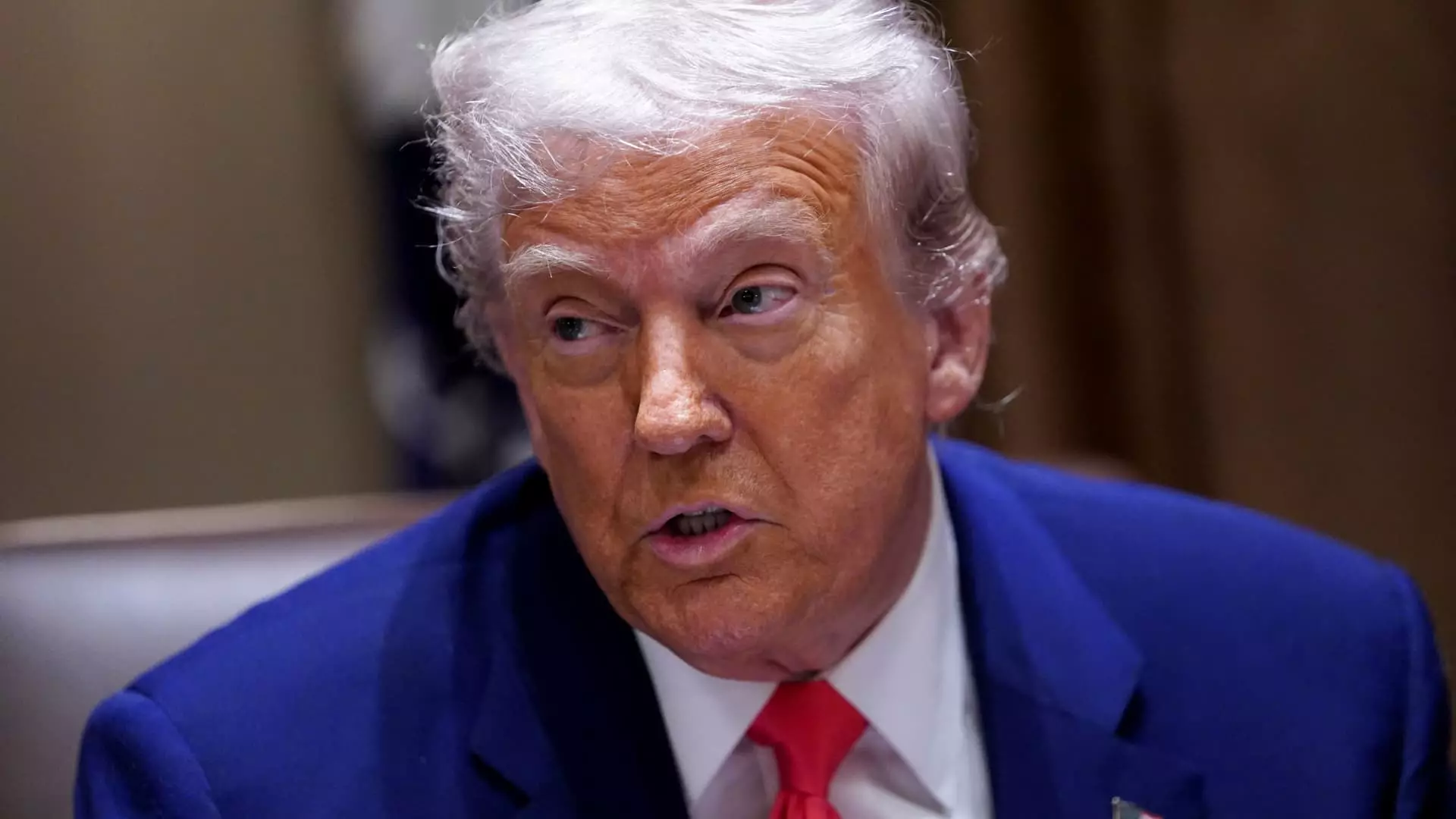The landscape of global trade is fraught with peril, and when President Donald Trump imposed sweeping tariffs on products imported from China, it felt as though we were plunging headfirst into an abyss. The astronomical 145% tariffs not only threatened the financial fabric of American tech companies but also acted as a suffocating blanket over the consumer market. Such an aggressive move could have spelled doom for industry titans like Apple, whose operational backbone is rooted in Chinese manufacturing. However, the recent decision by U.S. Customs and Border Protection to exempt smartphones, computers, and a slate of related components from these crippling tariffs is a much-needed lifeline—albeit a precarious one.
Clarity Amid Chaos
It is worth noting that the exemptions come amidst a climate of chaos that has led to significant losses for major tech firms. The sheer volume of Apple’s market cap diminishing—over $640 billion post-announcement—illustrates the panic that tariffs instigated in the financial sector. Investors are not merely passive viewers in this saga; they are active participants in a game where the stakes are impossibly high. When all signs pointed toward an impending cataclysm, the government had no choice but to respond to the palpable anxiety emanating from Wall Street.
However, while this move represents a strategic victory for tech companies, it is a temporary solution to what is fundamentally a flawed economic strategy. Seizing on this moment, industry experts like Dan Ives have sung praises for the rescue plan, calling the exemptions a game-changer. Yet, this is a classic case of fixing a broken finger instead of addressing the underlying issue of a broken arm. What we need is not selective exemption but a coherent trade strategy that prioritizes long-term economic resilience rather than short-term fixes.
The Underbelly of Tariff Politics
This exemption is a quintessential display of how politics intertwines with economic realities. It sends a clear message: when the economically elite scream, the government listens. While some may view this as a mere capitulation to powerful corporate interests, I argue that it reflects a failure to robustly consider the broader consequences of tariff implementations. Big tech CEOs wield considerable influence and thus have a powerful voice in shaping policies that affect not only their companies but also everyday consumers. These tariffs could have inflated consumer prices dramatically; after all, an iPhone could have climbed to an outrageous price of $3,500 due to misguided policies.
Moreover, the onus of accountability should not solely rest with the tech companies; government entities must shoulder the responsibility of ensuring that such economic hostilities do not disrupt the lives of ordinary Americans. The very infrastructure that allows for a “free market” has shown its cracks, revealing the need for comprehensive reform in how trade policies are developed and implemented.
Long-Term Implications of Short-Sighted Solutions
As we grapple with these issues, one must wonder: what are the long-term implications of relying on exemptions to sidestep deeper economic problems? The recent tariff modifications are only distractions from an ongoing crisis rooted in economic inequality and poor policy-making. Consumers have already borne the brunt of uncertainty, as stock market volatility has surged, exacerbating fears about potential recession. The increasing bond yields hint at a capitulating market where investors are questioning the stability of U.S. assets.
The government’s reliance on temporary economic maneuvers shines a spotlight on the urgent need for clarity and direction in trade policy. As we absorb the ramifications of President Trump’s original tariff initiatives, it becomes glaringly evident that short-term solutions can lead to long-term ramifications. The question is: how will we navigate the complicated landscape of trade while ensuring that both corporate interests and consumer needs are adequately addressed?
These exemptions may provide momentary relief, but they fail to tackle the systemic issues plaguing American businesses and consumers. This misalignment begs for a more nuanced conversation about how we can foster a balanced approach to trade that protects both the giants of the tech world and the average American. The dream scenario Dan Ives painted is not a magic bullet; it’s merely a pit stop in a marathon that demands a thoughtful exchange of ideas and collaboration across the political spectrum.


Leave a Reply